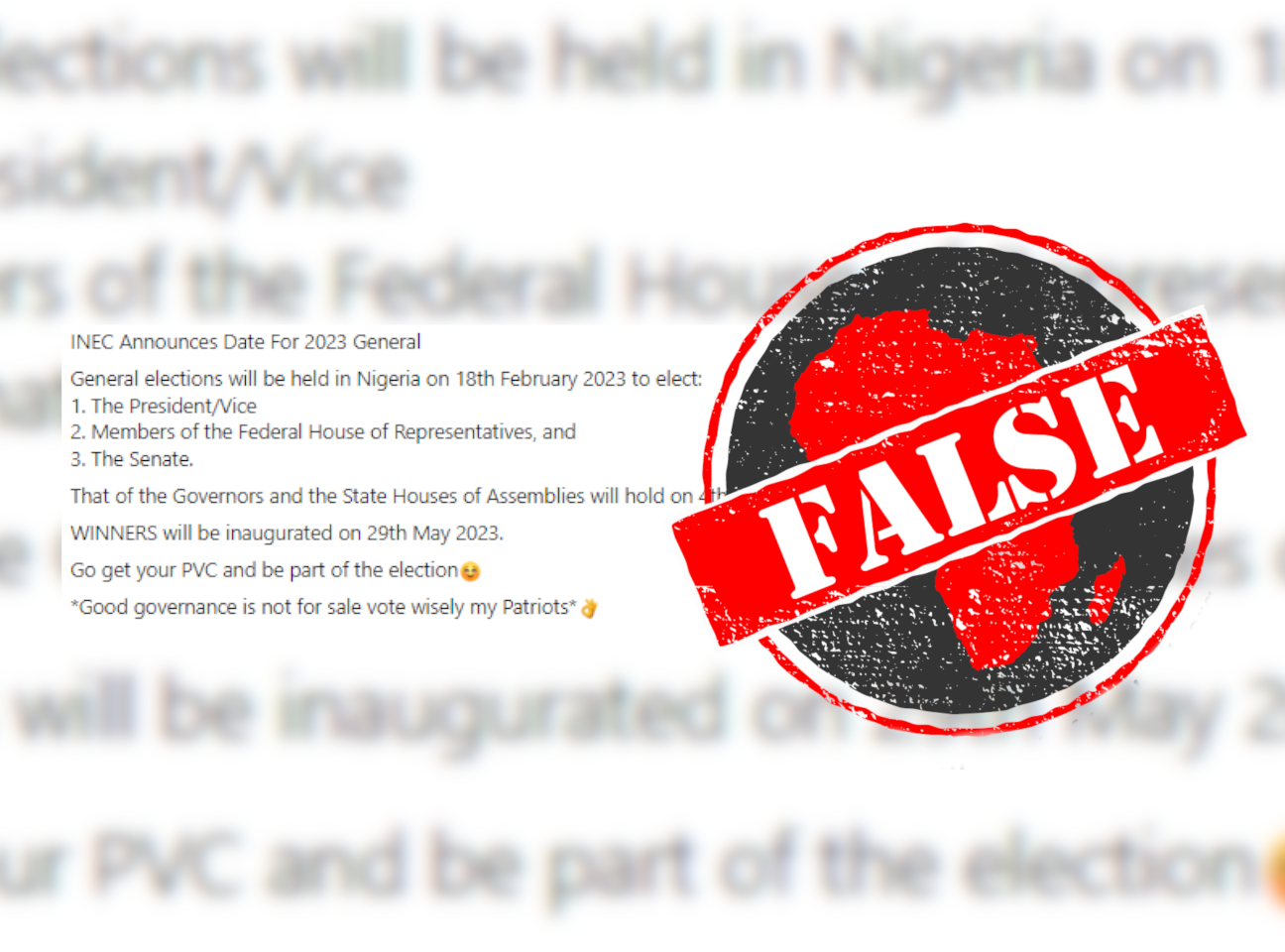“INEC Announces Date For 2023 General Elections,” a July 2022 post in a Nigerian Facebook group with more than 280,000 followers begins.
The Independent National Electoral Commission (Inec) is the electoral body that conducts elections in Nigeria.
The post claims Nigeria’s 2023 general elections to elect the president, vice president, members of the house of representatives and senate will be held on 18 February 2023.
“That of the Governors and the State Houses of Assemblies will hold on 4th March, 2023,” it adds.
We found similar claims on Facebook here, here and here.
Are Nigeria’s next elections to be held on this date? We checked.

Nigeria’s general elections as previously scheduled
On 26 February 2022 Inec published a timetable and schedule of activities for the 2023 general elections on its website. This contains the dates of key activities leading up to the election and of the election itself.
The document shows that the presidential and national assembly (house of representatives and senate) elections will be held on 25 February 2023.
Elections for the governorship and state house of assembly will be held on 11 March.
The Facebook post makes no mention of when and why Inec is supposed to have changed key dates on the electoral calendar.
We looked through Inec’s website and social media handles for any mention of new election dates and came up empty.
Such a major change would also have been widely reported in the mainstream media. We found no evidence of this.
This kind of misinformation risks disenfranchising voters and affecting their ability to participate fully in democracy.
Republish our content for free
For publishers: what to do if your post is rated false
A fact-checker has rated your Facebook or Instagram post as “false”, “altered”, “partly false” or “missing context”. This could have serious consequences. What do you do?
Click on our guide for the steps you should follow.
Publishers guideAfrica Check teams up with Facebook
Africa Check is a partner in Meta's third-party fact-checking programme to help stop the spread of false information on social media.
The content we rate as “false” will be downgraded on Facebook and Instagram. This means fewer people will see it.
You can also help identify false information on Facebook. This guide explains how.


Add new comment